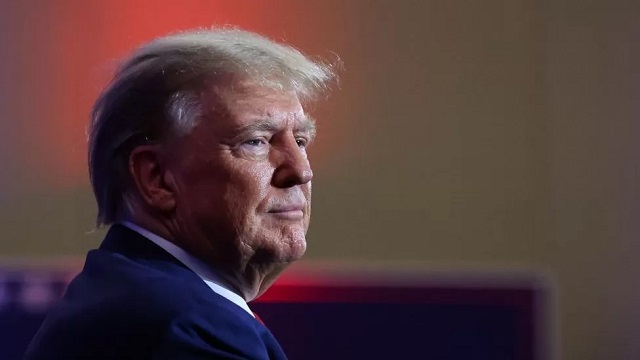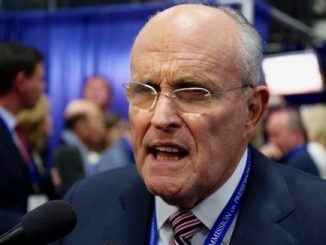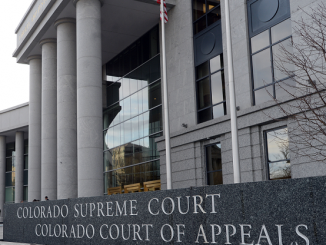
The US Supreme Court has been asked to decide whether Donald Trump can be prosecuted for crimes he allegedly committed while he was president.
Jack Smith, the special counsel overseeing two criminal investigations into Mr Trump, asked the court on Monday for a quick ruling on whether he is immune from federal prosecution.
The top court later agreed to consider his request.
It asked Mr Trump’s legal team to file a response by 20 December.
The justices, however, gave no indication of how or when they would ultimately rule.
Mr Trump, 77, is scheduled to stand trial in March on federal charges relating to an alleged plot to overturn the 2020 election results.
But his lawyers have repeatedly argued that former presidents cannot face criminal charges for conduct related to their official responsibilities.
That argument, however, was rejected by a lower court judge earlier this month who ruled the case could go ahead as planned. Mr Trump then said he would appeal that decision.
Mr Smith’s rare direct request to America’s highest court on Monday was an attempt to leapfrog the lower courts altogether and avoid any delays to the scheduled 4 March trial date.
Mr Smith wrote: “This case presents a fundamental question at the heart of our democracy: whether a former president is absolutely immune from federal prosecution for crimes committed while in office or is constitutionally protected from federal prosecution.”
He added that Mr Trump’s claims of presidential immunity are “profoundly mistaken” and “only this court can definitively resolve them”.
The Trump campaign earlier accused Mr Smith of trying “a Hail Mary by racing to the Supreme Court and attempting to bypass the appellate process”.
“There is absolutely no reason to rush this sham to trial except to injure President Trump and tens of millions of his supporters,” a spokesperson said.
Prosecutors rarely seek the top court’s intervention before a lower appeals court rules on a matter, and Mr Smith’s request reflects the urgency of his case.
If Mr Trump’s appeal delays the trial beyond the November 2024 election, it raises the possibility that the former president could return to the White House before his case is fully resolved.
That would lead to a new round of legal complications.
“It is of imperative public importance that respondent’s claims of immunity be resolved by this court and that respondent’s trial proceed as promptly as possible if his claim of immunity is rejected,” Mr Smith wrote.
With only five weeks to go before voting begins in the 2024 Republican primary, Mr Trump is currently polling well ahead of his rivals for the party’s nomination.
But he is also facing multiple legal cases, including a second one brought by Mr Smith which accuses him of mishandling classified material after he left office.
If Mr Trump wins back the White House, he would likely be able to pardon himself in the two cases brought by the special counsel and could force two state criminal cases against him to be put on hold.
His indictment in the 2020 election case charges him with four felony counts, including conspiracy to defraud the US government.
The special counsel’s court filing on Monday follows his previous accusation that Mr Trump is trying to “delay and disrupt” the trial at “every opportunity”.
The federal election case has moved fastest of the four criminal cases against Mr Trump and appears likely to be the first one that will go to trial.
Source: bbc.co.uk






Be the first to comment